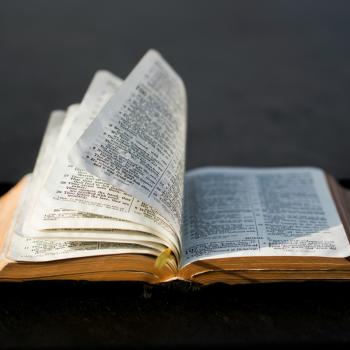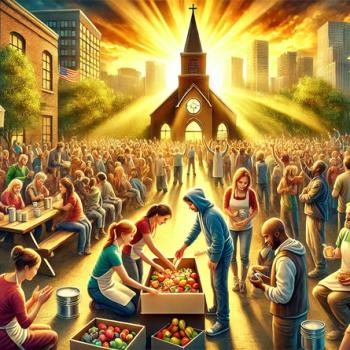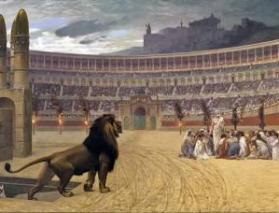Of all the Christian beliefs about God, the one that has taken the most beating in the modern-postmodern eras is the doctrine of Creation. This is a paradox that suggests to me two salient points:
- Modern fundamentalist theology has supplanted Catholic theology as predominant in the popular mind.
- It is imperative in the information age to recover a robust notion of creation that takes seriously both scientific methodology and orthodox faith.
These points become clear when one considers history. There is a long list of distinguished cleric-scientists in every discipline, from Copernicus to Roger Bacon to Gregor Mendel. In the modern era, the person who proposed the Big Bang theory was a Catholic priest, Georges Lemaitre (Ph.D. Physics, Massachusetts Institute of Technology, 1920; ordination to the priesthood in 1923). Many distinguished Jesuit physicists and cosmologists staffed the Vatican Observatory (founded two years before the U.S. Declaration of Independence was signed), and thirty-five of them have craters on the moon named after them.
The work of two modern scientists suggests a way forward in considering how we think about God as the author of all creation. The first is the Jesuit priest-paleontologist Pierre Teilhard de Chardin (1881-1955), who took part in the discovery of Peking Man. He developed a cosmic vision of the work of God that got him into trouble with his religious superiors, but interestingly his work was later praised by Pope Benedict XVI. Before his election to the papacy, Joseph Ratzinger was critical of Teilhard's vision of the cosmos, even as he recognized that it was an attempt to reconcile the evidence of science with an evolving understanding of creation:
He [Teilhard] described the cosmos as a process of upward development, as a journey of unification. From the very simple, this journey leads to ever greater and more complex units in which multiplicity is not cancelled out but integrated into a growing synthesis, culminating in the Noosphere, where spirit and its understanding comprehend the whole, and everything is integrated into a kind of living organism. Based on Ephesians and Colossians, Teilhard envisages Christ as the energy that drives towards the Noosphere, an energy that finally incorporates everything into its fullness....
The second figure is Father Michael Heller, winner of the $1.6 million Templeton Prize in 2010 for his pioneering research in the problem of singularity in general relativity, and the relationship between quantum mechanics and general relativity. Writes Heller:
I always wanted to do the most important things, and what can be more important than science and religion? Science gives us knowledge, and religion gives us meaning. Both are prerequisites of the decent existence.
Heller understands that the profession of faith that God is the maker of heaven and earth does not imply an ignorance of science, but rather a recognition that science and religion must work together for the sake of human understanding of the world.
In contrast to Teilhard's and Heller's views are those of modern Christian fundamentalists. That movement, a reaction against modernism, has captured the minds of many who cling to a naïve faith in the face of threats. Fundamentalism has captured the attention of many in the United States, in particular, adding fuel to the fire of various Christophobes who claim that Christianity as a whole denies science and pits creation against the abundant scientific evidence supporting evolutionary theory.
There is, of course, an alternative to intellectually bankrupt fundamentalism. Orthodox Catholicism has shown itself to be intellectually dynamic over its history. To be sure, many Catholics—including some leaders—have been slow to embrace scientific methodologies in thinking about the doctrine of creation. But it is equally clear that Catholicism is expansive and flexible enough to consider the cosmological and paleontological data as contributing to our understanding of creation, helping us to understand a most basic question: why is there something rather than nothing? (Or, to put the question theologically, why did God make a world?)





